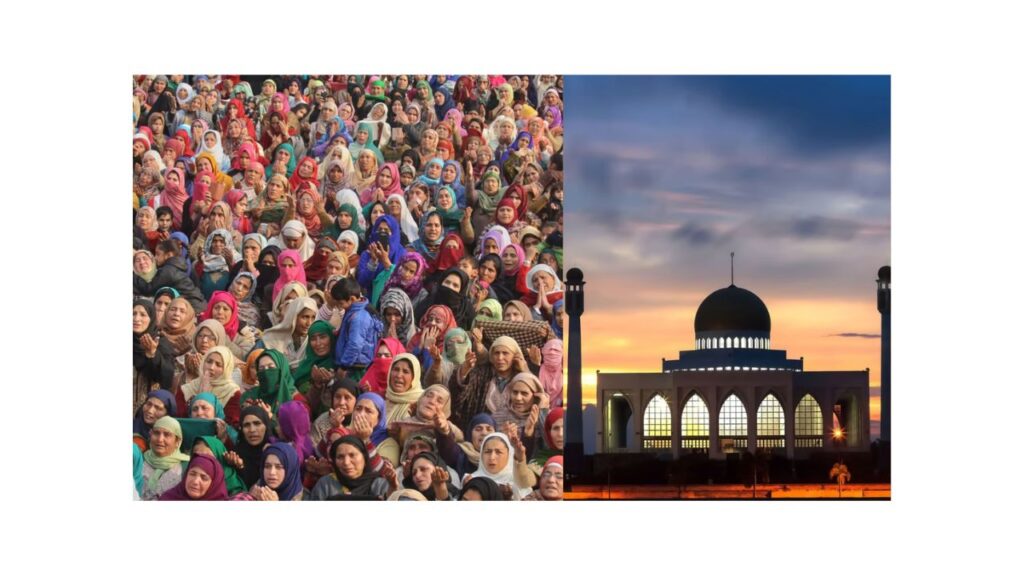Here is everything you need to know about the date, history, significance, and reasons why some Muslims celebrate Eid-e-Milad-un Nabi differently in 2024/12 Rabi ul Awwal 1446.
The festival known as Eid Milad-un-Nabi, or Eid-e-Milad, also known as Nabid and Mawlid in colloquial Arabic, is observed by the Sufi and Barelvi sects during the month of Rabi’ al-awwal, the third month in the Islamic lunar calendar. The Sufi and Barelvi Muslims celebrate the 12th day of this month as the anniversary of the birth of Prophet Muhammad, the last Prophet of Islam. Earlier this month, in September 2024, moon sightings were reported for the start of the month of Rabi’ al-awwal 1446 AH in Saudi Arabia, India, Pakistan, UAE, Bangladesh, Sri Lanka, and other parts of the world.
Date:
On September 4, this year, Muslims in India saw the crescent moon for Rabi’ al-awwal 1446 AH. According to the Gregorian calendar, the first day of Rabi ul Awwal 1446 was September 5, 2024. Since the believers commemorate the Prophet’s birth anniversary on the twelfth day of Rabi ul Awwal, this year’s Eid-e-Milad will be held on September 16.
Eid-e-Milad is celebrated by members of the Sunni community of Muslims on the 12th day of Rabi’ al-awwal, while the Shia community celebrates it on the 17th. This is because the Islamic calendar, also known as the lunar calendar, is based on the sighting of the crescent moon and differs from the Gregorian calendar.
History and significance:
The Fatimids were the ones who first proposed the idea of commemorating Prophet Muhammad’s birthday, which dates back to the early four Rashidun Caliphs of Islam. Some Muslims hold that on the twelfth day of Rabi’ al-awwal in 570 CE, Prophet Muhammad was born in Mecca.
Even though the Arabic word for “Mawlid” means “to give birth” or “bear a child,” some people also mourn Eid-e-Milad because they believe it to be the anniversary of the Prophet’s death. Eid-e-Milad was first observed as an official holiday in Egypt in the eleventh century, and its celebrations grew in popularity.
The festival was not open to the general public at that time; only the Shia Muslims who ruled the area at the time were permitted to celebrate. Only in the twelfth century did Syria, Morocco, Turkey, and Spain start to celebrate Eid-e-Milad; shortly after, other Sunni Muslim groups joined in the festivities.
Celebrations:
Since the celebrations started in Egypt, Muslims have marked the occasion with prayers, followed by speeches and narrations of Holy Quranic verses by the ruling clan, and a lavish public feast. The members of the ruling clan were revered because they were thought to be Muhammad’s emissaries, or Caliphs.
Afterwards, when the customs underwent significant modifications due to the influence of Sufism, the festivities were commemorated with public talks, animal sacrifices, torchlight processions at night, and a banquet. These days, Muslims celebrate Eid-e-Milad by exchanging greetings, praying, and dressing in new clothes.
When they gather at a mosque or a dargah, they pray together in the morning and then go in a procession that travels from the mosques to the town and back. Children are told stories from the Holy Quran about the life and teachings of Prophet Muhammad. Community meals are arranged, donations are given to the underprivileged, and friends and family are invited to participate in the naat festivities and social gatherings that include overnight prayers.
Bidaah:
While Eid-e-Milad and its customs are widely observed in India and other nations, there are numerous Muslim communities that feel that the Prophet Muhammad’s birthday celebrations have no place in Islamic culture. Salafi and Wahhabi Muslims do not observe the celebrations because they believe that the Holy Quran and Sunnah demonstrate that celebrating any other holiday except Eid al-Fitr and Eid-e Adha is a form of biddah, or innovation in religion.
They contend that since Eid-e-Milad, also known as Mawlid, was not even observed during the lifetimes of the Prophet Muhammad and his designated heirs, it is an invention or act of biddat.
